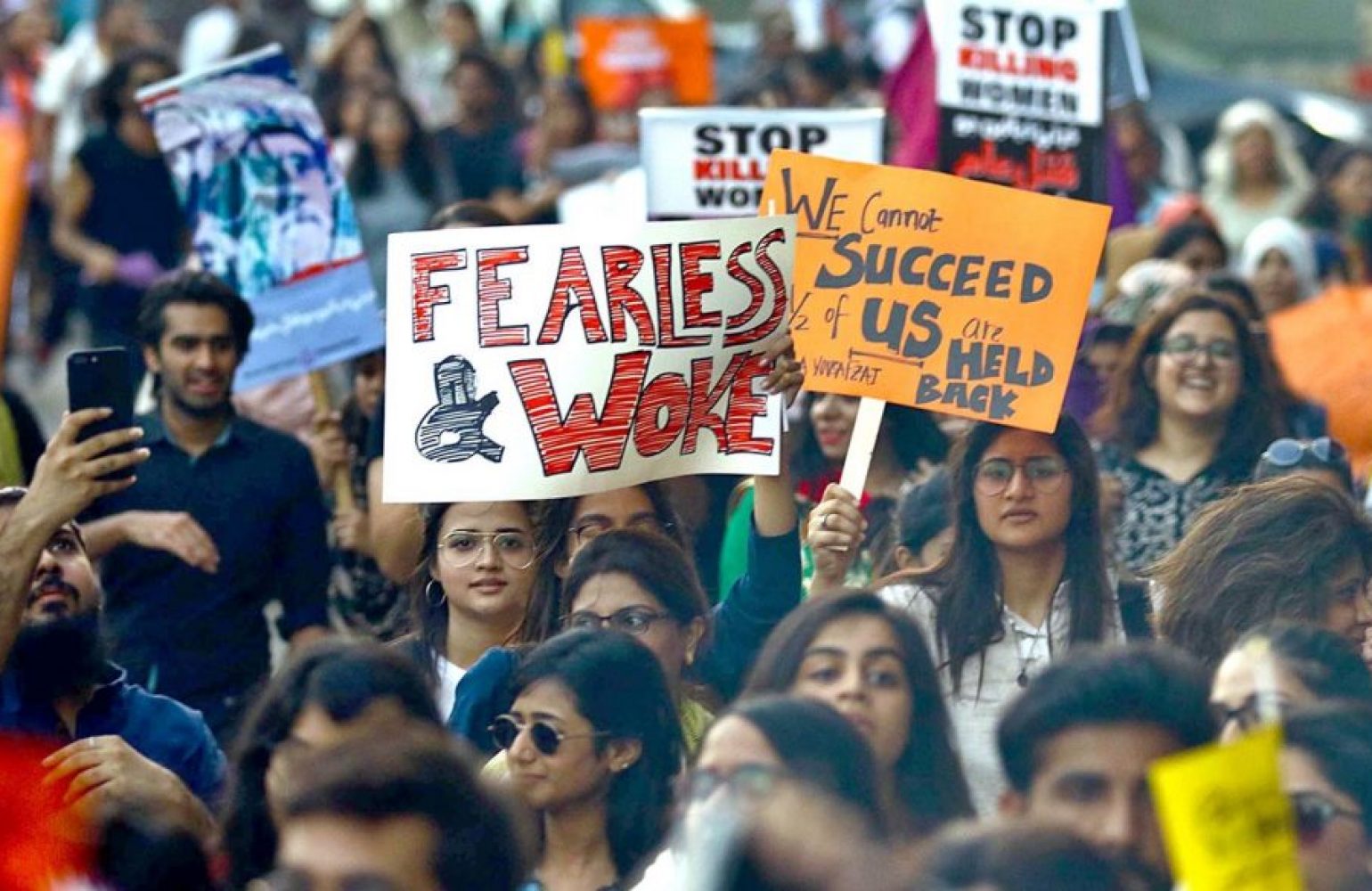We, the undersigned, express our unequivocal support to women who spoke out against sexual harassment and those who supported the survivors. We are concerned over the nature of media coverage that the case of harassment from famous singer Meesha Shafi against a male singer has received since it was filed, and more so in the past few days.
News media organisations have a responsibility to report on topics as sensitive as this without a bias, something that was categorically missing in the recent coverage of the said case. The subsequent coverage has attacked individuals supporting the victims of the case, maligned their credibility, and opted for the use of defamatory and false statements against them. It is disheartening to see credible and legacy news organisations succumbing to hyperbole and publishing misleading headlines, making statements that are legally and technically incorrect. On TV, it is disheartening to see media replay shot after shot of the accuser and accused, as if a former friendship between the two somehow discredits the accusation of harassment.
While most women who have stood in support with Meesha have been intimated through hate campaigns and legal notices, Meesha’s council, lawyer and activist Nighat Dad has faced the brunt of these intimidation tactics. Such tactics will only push survivors of harassment and violence into silence and deprive them of support.
It is imperative to remember that sexual harassment and violence is a crime that the state has totally failed in protecting women from. It is the responsibility of legislators, law enforcement and judiciary to improve the laws and their implementation and give justice to survivors. We call upon the government to remember its duties to the women of the country and make legislative changes that actually allow them to seek justice against perpetrators, rather than creating technical loopholes. We also ask the government to consider various recommendations of the UN to decriminalise defamation and instill mechanisms to stop the usage of defamation law as a tool to stop women from speaking up against harassers and abusers.
We ask the editors, news managers and reporters in mainstream and digital media to sensitise themselves about gender issues. We ask media houses to ensure that the coverage of this case and all cases related to gender based harassment and abuse is sensitive, unbiased, fact checked, professional and ethical. We hope that the journalists and media houses will uphold the ethics of journalism while reporting on sensitive issues like the women’s rights and violence that they face in the country, both online and offline – something that has institutionally and systematically been ignored.
Undersigned,
| Organisations
Women in Media Alliance Media Matters for Democracy Women Democratic Front Tehrik-e-Niswan Women’s Advancement Hub Women’s Action Forum (WAF), Karachi Aurat March Lahore
Individuals Sadaf Khan, Activist Hija Kamran, Activist Tanzeela Mazhar, Senior Journalist Hina Gul Roy, Lawyer R Umaima Ahmed, journalist Leena Ghani, Activist Atiya Abbas, Activist Aabida Ali, Political Organiser Seerat Khan, Activist Shmyla Khan, Activist/Lawyer Asad Ali Toor, Journalist Nosheen Naqvee, Journalist Salwa Rana, Activist Usama Khawar Ghumman, Lawyer Nazish Zafar, Senior Journalist Suleman A. Zeb, Advocate High Court Mehwish Mohib Kakakhel, Lawyer Zaira Anwar, Lawyer Jannat Ali Kalyar, Lawyer Dileep Doshi, Lawyer Sana Farrukh, Advocate High Court Maryam Saeed, Activist Huma Dar, Scholar and Activist Abdullah Nizamani, Lawyer Anis Haroon, WAF Karachi Kauser S Khan, WAF Karachi Sheema Kermani, Activist Nasreen Siddiquie, WAF Karachi Noreen Zehra, Senior Journalist Hilda Saeed, WAF Karachi Amber Rahim Shamsi, Senior Journalist Fatima Razzaq, Journalist Alina Anjum, Activist Asad Baig, Journalist |

